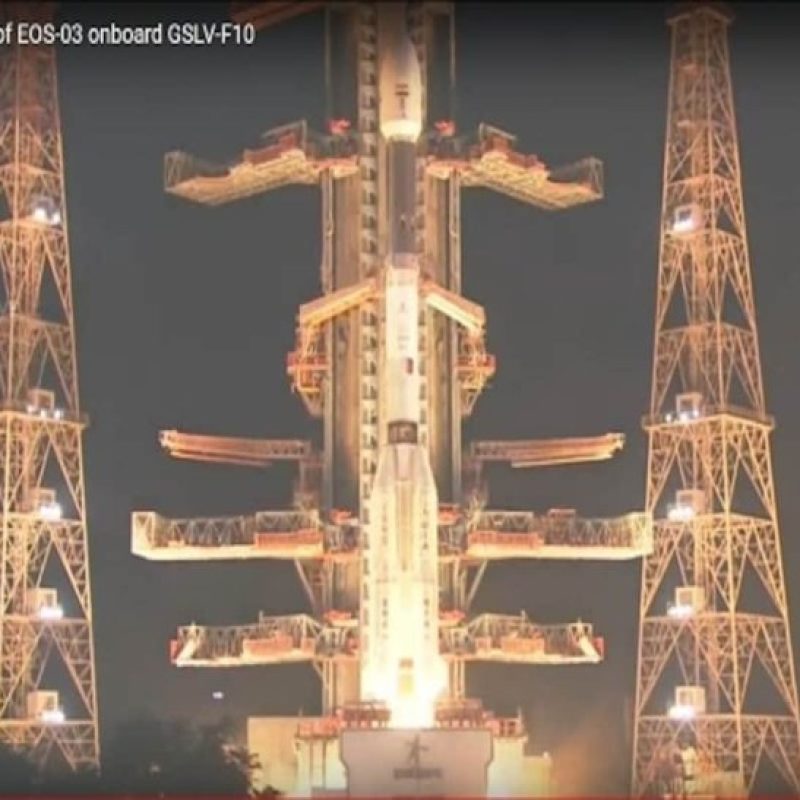The Indian space agency, ISRO (Indian Space Research Organisation) witnessed a disappointing launch of the Geo-synchronous Satellite Launch Vehicle (GSLV -F10). The launch was scheduled at 5:43 IST on Thursday. The aim was to launch an earth observation satellite (EOS-03) into a Geo-synchronous orbit, which is around the earth. As the name indicates, Geo-synchronous Satellite Launch Vehicle or GSLV launches satellites into an orbit synchronous with the Earth.
The first two stages of the launch, namely solid fuel and liquid fuel respectively, turned out good. The problem arose in the third stage. After the rocket’s lift-off, the scientists present in the Mission Control Centre (MCC) noticed a deviation of the rocket from its path. The next thing was a discussion among the ISRO officials with their chairman K. Sivan. Post the discussion, the Range Operations Director stated, “Performance anomaly [was] observed in the cryogenic stage. [The] mission could not be accomplished fully.”
Geo-Imaging Satellite GISAT-1 By ISRO
The launch remained unsuccessful because the cryogenic upper stage ignition failed to provide the desired outcome. Possibly, there was a technical anomaly. The Chairman of the Indian space agency confirmed it. He says, ‘ “(The mission) could not be fully accomplished mainly because there is a technical anomaly observed in the cryogenic stage. This I wanted to tell all my friends.”
Read the official statement of ISRO here –
“GSLV-F10 launch took place today at 0543 Hrs IST as scheduled. Performance of the first and second stages was normal. However, Cryogenic Upper Stage ignition did not happen due to technical anomaly. The mission couldn’t be accomplished as intended.”
This satellite is crucial in the sense that it could have provided real-time imaging of vast areas of Earth. EOS-3 may have monitored natural disasters and it’s another function was to issue warnings for natural calamities.
The in-charge of the Department of Space, Jitendra Singh tweeted, “Spoke to Chairman #ISRO, Dr K Sivan and discussed in detail. The first two stages went off fine, only after that there was a difficulty in cryogenic upper stage ignition. The mission can be re-scheduled some time again.”

